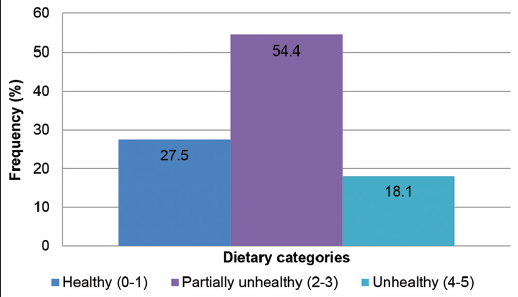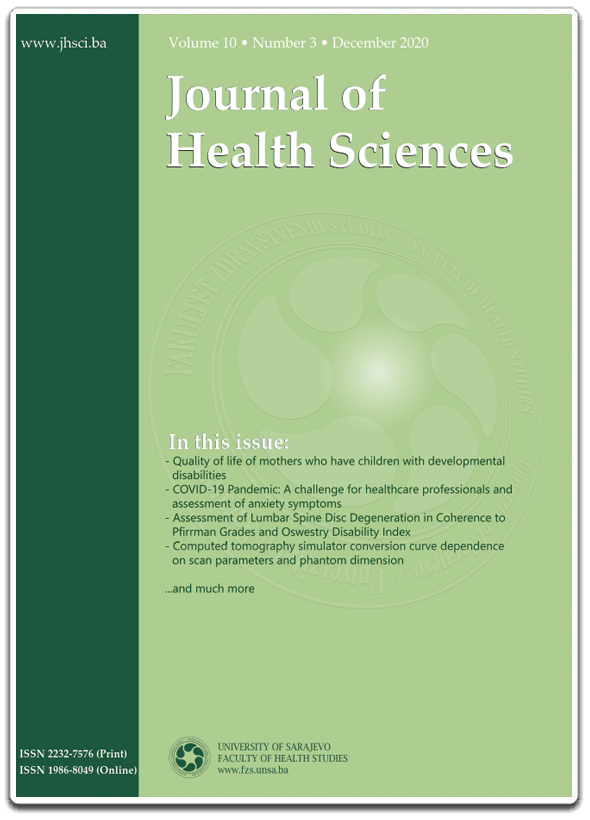Eating habits and certain anthropometric characteristics among individuals with type 2 diabetes mellitus in Banja Luka (Bosnia and Herzegovina)
DOI:
https://doi.org/10.17532/jhsci.2025.2735Keywords:
Anthropometric indices, dietary habits, nutritional interventions, type 2 diabetes mellitusAbstract
Introduction: The analysis of healthy eating parameters in comparison with the anthropometric characteristics of individuals with type 2 diabetes mellitus can serve as a useful tool to prove that changes in glucose metabolism are related to dietary habits. This study investigates the dietary habits and anthropometric characteristics of individuals with type 2 diabetes mellitus (T2DM) in Banja Luka, Bosnia, and Herzegovina. The primary aim was to assess the correlation between dietary habits and anthropometric measurements, including body mass index (BMI), waist circumference (WC), and waist-to-stature ratio (WSR), using the UK Diabetes and Diet Questionnaire (UKDDQ).
Methods: A cross-sectional survey was conducted at the University Clinical Centre of the Republic of Srpska. The study involved 160 participants, aged 40-80 years, with a diagnosis of T2DM. Dietary habits were assessed using the UKDDQ, while anthropometric measurements (BMI, WC, and WSR) were calculated following standard procedures. Statistical analysis was performed using SPSS version 25, applying descriptive statistics, one-way ANOVA test, and the Mann–Whitney U test to assess associations.
Results: The results showed that only 27.5% of participants adhered to healthy dietary habits, while the majority (72.5%) exhibited partially unhealthy or unhealthy eating patterns. Significant correlations were found between unhealthy dietary habits and higher BMI, WC, and WSR values. In addition, sociodemographic data indicated a predominance of older individuals and a higher percentage of women among the participants, with a significant portion residing in urban areas with low socioeconomic status.
Conclusion: This study demonstrates a link between poor dietary habits and higher anthropometric indices in individuals with T2DM. Targeted nutritional interventions, particularly increasing fruit, vegetable, and omega-3 intake, are essential for better diabetes management, especially in urban populations with low socioeconomic status.
Downloads

Downloads
Published
License
Copyright (c) 2025 Маја Šibarević, Jelena Malinović Pančić, Tamara Dojčinović, Rajko Roljić, Elvira Hadžiahmetović Jurida

This work is licensed under a Creative Commons Attribution 4.0 International License.










